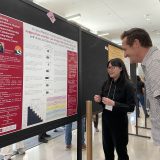Consulting Environmental Expertise An Alternative Route to Environmental Problem Solving
September 16, 2016
It probably doesn’t seem the most desirable job, or even a remotely exciting position an environmental science student might pursue, but the title of ‘environmental consultant’ below my name certainly has a certain sophistication that makes me stand up a bit more pretentiously and proudly. I like to think that I’ve worn the title well for the past three months.
A newly-emerging field that’s earned both my interest and respect over the past few years, the field of environmental consultancy is a unique one, merging the science, policy, and economic expertise, of ecologists, earth and atmospheric scientists, policy professionals, natural resource economists, and others to provide necessary information to help organizations of all types gain, grow, and learn from these knowledge bases. From local and federal governments, to corporations both big and small, to non-profits and NGOs, most organizations are either required to comply with a series of environmental regulations, or they can somehow benefit from compliance with non-required ecological standards; if these organizations can demonstrate to certain environmental organizations that their products or business practices are especially environmentally sound, are unique in their environmental impact, or can help pave the way to continue developing greener practices and marketable products, these organizations can benefit from governmental funding awards to further their research and development, tax breaks or rebates, cash awards, better PR, more publicity, and other privileges that can help these groups grow financially or otherwise.
However, without the proper expertise or recommendations to help an organization develop strategies of long-term sustainability, they can suffer in comparisons to the organizations that do find the right strategies, and benefit in comparison; the benefits of environmental compliance and sustainable developments in organizational models are invaluable, but only a select few in the academic community have a background appropriate to communicate the meanings of environmental compliances or changes to a business, government, or organizational model who’s immediate goal isn’t sustainability. In this way, the environmental scientists and experts who take on these jobs play one part scientist (collecting and analyzing important information and data), one part ambassador (communicating unfamiliar information to an unfamiliar community), and one part fixer (offering multi-faceted solutions to solve complicated problems that are often social, environmental, and political). Think of environmental consultants as the team members who not only have an organization’s success as a priority, but the protection of environment
This summer, I had the opportunity to consult for a Bay Area start up known as EVAOS, the company name, an acronym standing for Electric Vehicle Add On Systems. The engineers of the team have brilliantly designed an external automotive system that, when attached to a diesel gas-powered vehicle, can allow that vehicle to double its fuel efficiency. The device also allows gas-powered internal combustion-engine vehicles to operate as a plug-in electric vehicle, therefore offsetting tailpipe emissions. My job, as an environmental consultancy intern, was to submit biweekly reports on any environmental information that might be helpful in furthering the goals of the organization. Some of the work was building PR, some of it was geared towards informing the CEO and his team of how this technology could be used in compliance with current green regulations, and how, as unique as the product was, how the use of this technology could literally push the boundaries of even the most progressive American environmental policies to be even more effective.
Using a combination of quantitative analysis and numerical calculation, analysis of complicated state and federal environmental and energy-related documents, my own analysis of various environmental regulations, and my own recommendations on the best ways to communicate certain goals, advertise success, and calculate long-term environmental impact with the widespread uses of their product, I joined the EVAOS team as yes, a student, but one who could conduct multi-faceted conversations about the intersection between their business, and the policy, business, engineering, and environmental goals they have for the near future. It’s difficult, as an intern, to juggle expectations from these multiple economic, business, scientific, and personal demands. However, the work is also incredibly rewarding: it’s putting years of chemistry, biology, statistics, environmental impact analysis, policy, and research training in the classroom into work that can help both a company and an undergraduate intern grow.
After working as I have this summer, I’ve turned my academic interests to focus somewhat more intensely on the training required to become an environmental consultant, and perhaps to build my own consultancy organization. Realizing the impact that consultants can have in activating and furthering some of the most effective environmental management and policy tools in bringing about environmental regulation and change, I feel almost surprised that until this summer, I had never considered consultancy as a viable professional goal. Whether I’ll choose to pursue this field in the future remains to be seen, but regardless, I’m grateful to my team at EVAOS, and Professors Jason Keller and Jennifer Funk for teaching me every tool that I’ve used in this latest position in the environmental field.
My goodness I adore my major.


